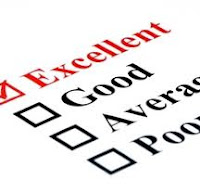A new study underwritten by the Bill & Melinda Gates Foundation (which is among the funders of The Hechinger Report) tackles the question of whether the new teacher evaluation systems going into effect in school districts across the country are accurate and reliable in identifying which teachers are good and which are not. The researchers found that the new evaluation systems are likely to be more reliable than the methods used in the past. But they are not perfect.
The study argues that current teacher evaluation systems are broken, suggesting, as many critics have in the past, that the problem with the old approach was its failure to distinguish among the great, the mediocre and the bad: More than 90 percent of teachers were labeled as satisfactory, even in school districts where student achievement and graduation rates were abysmal. Under the old system, principals usually conducted one classroom observation per teacher every few years, marking off things on a checklist, like whether students were behaving and goals were displayed on the chalkboard.
Advocates for a new system of measuring teachers—with usually more than one classroom observation a year, plus standardized test scores that measure how much a teacher’s students improve academically, plus other measures like student survey results—say it is more consistent and precise. This new system is being promoted as more dependable in telling districts which teachers are great, which need help to get better, and, most controversially, which need to be let go...
A web-based destination for aggregated news and commentary related to public school education in Kentucky and related topics.
Friday, January 13, 2012
Report cards for teachers: Are they fair?
This from the HechingerEd Blog:
Subscribe to:
Post Comments (Atom)

1 comment:
First, the linkage between satisfactory teaching and graduation rates is not a one channel liniar relationship.
The bottom line is that the one formal observation evaluation is not the flaw in this system. When I go into a teacher's classroom for the formal evaluation, it is just a limited portion of what I take into account in my determination of the teacher's effectiveness. All seasoned administrators know you can spin a formal evaluation to say whatever you want. Often times it is the administrator's pre-evaluation observations and antidotal impressions of the teacher, parent and faculty comments, student performance and behavior, etc. which set the tone for what is to become the formal observation instrument.
The problem is that some administrators either won't pull the trigger for various personal, social or political reasons. I personally don't understand why some of my colleagues are reluctant to do this but for me, I wish could look at teachers and determine effectiveness which would result in immediate action instead of waiting around for the year to end. Are we really willing to write off an entire classroom of kids for one year because we hired someone in the summer who didn't pan out. Would Toyota keep a line worker in place for months if they knew that the individual was attaching the brake line properly or sealing the gas tank connections in order to complete that year's model production? So if we are willing to do it for cars, why not kids?
Post a Comment